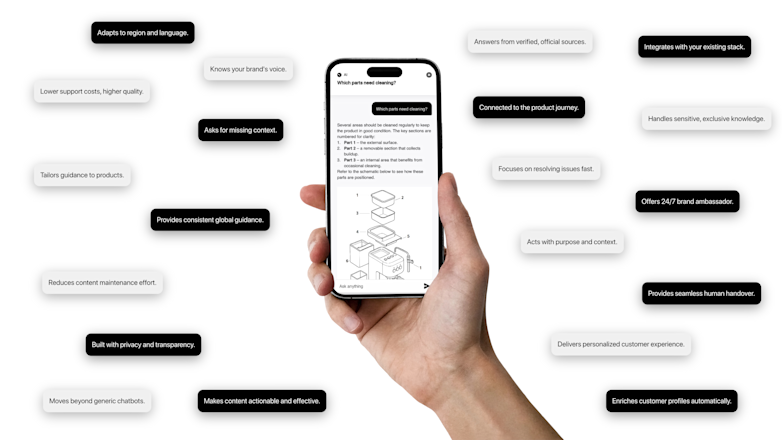
Customer Relationship Management (CRM) plays a vital role in modern business operations. By helping organizations manage their interactions with current and potential customers, CRMs contribute significantly to customer retention and drive sales growth. Among these solutions, Salesforce has often been the choice for many due to its wide range of features and capabilities.
However, as with many technology solutions, one size does not fit all. For a variety of reasons, including cost, usability, and specific feature requirements, many small businesses are seeking alternatives to Salesforce. These could range from software that offers similar functionality but at a lower cost, to more niche solutions that are tailored to the specific needs of smaller enterprises.
This blog post is designed to assist in this search. It explores Layerise as a top alternative, followed by several other noteworthy competitors of Salesforce. Our aim is to guide you to the CRM solution that best suits your business's unique needs and budget, while also providing a high-quality service that enables your organization to nurture customer relationships effectively.
The discussion here is designed with a single intent: to guide small businesses toward making a wise, informed purchase decision that leads to enhanced CRM capabilities. We explore:
The distinctive features of each CRM
Use cases or specific applications for small businesses
A comparison with Salesforce CRM
As we delve into the world of Salesforce CRM competitors, we begin with Layerise; a unique and promising alternative.
Layerise - A Promising Salesforce Alternative
Layerise is a customer registration and experience platform for consumer brands that distinguishes itself as a competitive choice in the vast ocean of Salesforce alternatives. Our software is designed with small businesses in mind, offering robust features and an intuitive interface. With Layerise, you can effectively convert your retail and marketplace customers into new sales opportunities.
Introduction to Layerise
Layerise is a powerful tool that aims to streamline the complexities of customer relationship management and customer data collection. The solution is versatile and can be adapted to both small business and corporates. With a suite of tools that can be tailored to small businesses, it provides a solid platform to manage customer interactions effectively and efficiently.

Distinctive features of Layerise
What makes Layerise stand out among Salesforce CRM competitors? Here are the key features that set Layerise apart:
First-party customer data collection: Layerise empowers brands to proactively establish and nurture relationships with customers by facilitating the collection and activation of first-party customer data. Their platform empowers consumer goods companies to gather valuable insights about their customers at the point of purchase and leverage this information to enhance the overall customer experience.
D2C channel setup: Layerise prides itself on its ability to create a D2C channel for brands to directly communicate with their customers and enhance engagement. By leveraging the Layerise solution, brands can create a thriving community centered around their brand, consistently generating value over time.
Customizable Interface: Layerise offers a customizable interface that can be tailored to the specific needs of your business. This level of customization offers a personalized user experience that isn’t always possible with other tools.
Affordable Pricing: Budget is a crucial factor for small businesses. Layerise offers an affordable pricing structure that doesn't compromise on quality or feature set. This affordability makes it an excellent Salesforce open source alternative.
Use cases or specific applications of Layerise
Layerise's flexible and powerful features make it adaptable to a range of applications. Here are a few scenarios where Layerise shines:
First-party data: Layerise enables brands to gather valuable first-party data by utilizing customizable Forms at the point of purchase, thereby capturing powerful insights.
Contact management: Layerise offers robust contact management capabilities, enabling small businesses to organize and manage their customer information effectively.
Task automation: With Layerise, businesses can automate routine tasks, freeing up valuable time for focusing on more strategic objectives.
Sales analytics: Layerise provides detailed sales analytics, allowing businesses to track their performance and make data-driven decisions.
Comparing Layerise with Salesforce: pros and cons
While Salesforce has long been the industry standard, Layerise offers a compelling alternative. Here are some considerations:
Ease of use: Layerise's intuitive interface makes it easier to navigate and use, even for non-technical staff members.
Pricing: Layerise is more affordable than Salesforce, making it a more cost-effective choice for small businesses.
Customer support: Layerise's superior customer support ensures that customers' needs are addressed promptly and effectively.
In the realm of CRM solutions, Layerise clearly stands out as a powerful, flexible, and affordable Salesforce alternative that is well-suited to meet the needs of small businesses.
It goes beyond conversion, empowering you to tap into your customer base and transform them into new sales opportunities. You get valuable features such as real-time contextual data, encompassing demographics, product models, and maintenance schemas.
Through smart interactive stories enriched with visuals and videos, Layerise allows you to effectively engage and guide your customers. Moreover, the platform facilitates a deeper understanding of your customer base, including their demographics, product ownership and warranty management. Additionally, it helps build trust by enabling you to flaunt your certifications, further enhancing your product credibility.
4 more game-changing salesforce CRM alternatives for small businesses
Exploring further, we have identified four additional CRM solutions that stand out as formidable Salesforce alternatives. Each one possesses unique attributes, making them worthy of consideration for small businesses seeking a different path to manage their customer relationships.
1) Zoho CRM
In the competitive market of CRM solutions, Zoho CRM consistently shines as a well-rounded choice. It is a comprehensive CRM solution that offers a rich and diverse set of features. These features are not limited to sales force automation, lead management, and customer service, but extend beyond, aiming to provide a unified platform that caters to various business needs.

Distinctive features of Zoho CRM
Complete sales cycle management - One of the core strengths of Zoho CRM is its ability to provide tools for managing your entire sales cycle. From the first point of contact with a lead to deal closure, Zoho CRM can facilitate and streamline every stage. That can be a tremendous asset for small businesses looking for a CRM that can adapt and evolve with their sales journey.
AI-powered sales assistant - Zoho CRM stands out among many Salesforce competitors for its AI-powered sales assistant, Zia. This unique feature can be a game-changer for small businesses, providing valuable sales forecasts, deal predictions, and smart alerts. The AI assistant can save time, improve efficiency, and help your team make more informed decisions.
Multi-channel support - In today's digital age, customers connect with businesses on various platforms. Recognizing this, Zoho CRM offers multi-channel support, encompassing email, phone, live chat, and social media. This feature ensures that you can reach your customers where they are, enhancing their experience and fostering better relationships.
Use cases or specific applications of Zoho CRM
Streamline the sales process - With its complete sales cycle management, Zoho CRM is well-suited for small businesses looking to streamline their sales process. By keeping all the sales data in one place and providing insightful analytics, Zoho CRM can help businesses optimize their sales strategies.
Automate routine tasks - Zoho CRM’s robust automation capabilities can relieve your team from the burden of repetitive tasks. This allows them to focus on what matters most - building relationships with customers and closing deals.
Improve customer interaction across multiple channels - With its multi-channel support, Zoho CRM can enhance the way businesses interact with their customers. This ensures a smooth, seamless experience for customers, regardless of their preferred mode of communication.
Comparing Zoho CRM with Salesforce
When compared to Salesforce, Zoho CRM emerges as a more affordable and customizable alternative. While Salesforce does offer advanced reporting and analytics features, the cost and complexity might be overkill for some small businesses. Zoho CRM, on the other hand, strikes a balance between cost, customization, and functionality, making it a viable Salesforce alternative for many small businesses.
2) HubSpot CRM
One of the well-regarded Salesforce alternatives on the market is HubSpot CRM. This CRM platform is known for its user-friendliness and affordability, making it an excellent choice for small businesses that need a straightforward solution. Beyond its CRM capabilities, HubSpot CRM integrates seamlessly with other HubSpot's marketing, sales, and service tools, offering an all-in-one solution for managing and nurturing customer relationships.

Distinctive features of HubSpot CRM
Free access - One of the most appealing aspects of HubSpot CRM is its price point – it's free to use. While there are optional paid upgrades available for businesses that need more advanced features or capabilities, many small businesses find the free version more than sufficient to meet their needs. This can be a game-changer for small businesses working with tight budgets.
Sales and marketing integration - HubSpot stands out for its integration capabilities. It is not just a CRM but a complete platform that brings together marketing, sales, and service tools. This means that all your customer data is stored in one place, making it easier to track interactions, personalize communications, and nurture relationships.
Ease of use - Unlike many CRM solutions that come with a steep learning curve, HubSpot CRM is renowned for its user-friendly interface and easy setup. This can save your business valuable time and resources that can be better spent on building relationships with your customers and growing your business.
Use cases or specific applications of HubSpot CRM
HubSpot CRM is a versatile tool that can meet various needs. It is perfect for small businesses aiming to:
Integrate their sales and marketing efforts - The integration between HubSpot's marketing, sales, and service tools allows for a cohesive approach to customer management. This can improve efficiency and ensure a consistent customer experience across all touchpoints.
Track customer interactions - With all customer data in one place, it's easier than ever to track interactions and gain a comprehensive view of each customer. This can lead to more personalized communication and better customer relationships.
Use a simple, user-friendly CRM - If simplicity and ease of use are top priorities for your CRM solution, HubSpot CRM could be a great fit. Its user-friendly interface and easy setup can get your CRM up and running quickly and efficiently.
Comparing HubSpot CRM with Salesforce
When compared with Salesforce, HubSpot CRM's simplicity, free access, and seamless integration with other HubSpot tools make it a strong contender. While Salesforce might offer more advanced features, these can be complex and costly. For small businesses looking for a simple, integrated CRM solution, HubSpot CRM can often be a more suitable choice.
3) Freshworks CRM
For small businesses seeking a modern and agile CRM solution, Freshworks CRM, previously known as Freshsales, is worth considering. This dynamic CRM offers AI-powered insights, robust automation, and seamless integrations, making it a capable contender among Salesforce alternatives.

Distinctive features of Freshworks CRM
AI-Based insights - In the era of data-driven decision-making, Freshworks CRM shines with its AI-powered insights. The platform's AI engine, Freddy, analyzes your data to predict the most promising leads and deals. This level of predictive analysis can greatly enhance your sales process, allowing you to focus on leads with the highest conversion potential.
Event tracking - Freshworks CRM goes beyond basic customer data management with its event tracking feature. By tracking user actions on your website or product, Freshworks CRM provides a comprehensive view of customer behavior. This can yield valuable insights into your customers' needs and preferences, helping you tailor your approach to each customer more effectively.
Robust automation - Automation is key to maximizing efficiency, and Freshworks CRM delivers robust automation capabilities. From lead scoring and distribution to deal management, you can automate a variety of tasks, allowing your sales team to focus more on relationship-building and less on administrative duties.
Use cases or specific applications of Freshworks CRM
An insight-driven sales process - With its AI-based insights, Freshworks CRM can help businesses move towards a more data-driven and predictive sales process. This can lead to more targeted sales efforts and higher conversion rates.
A clear view of customer activities - Thanks to its event tracking feature, Freshworks CRM can provide businesses with a clear, comprehensive view of customer activities. This can aid in understanding customer behavior and tailoring the customer journey accordingly.
Task automation to improve efficiency - By automating repetitive tasks, Freshworks CRM can save time and enhance productivity. This can allow your team to focus more on strategic efforts, such as nurturing customer relationships and closing deals.
Comparing Freshworks CRM with Salesforce
When weighed against Salesforce, Freshworks CRM holds its own with its user-friendly interface, AI-based insights, and robust automation. While Salesforce does offer more extensive customization options, these often come at a higher cost and complexity. For small businesses seeking a balance of functionality, user-friendliness, and cost-effectiveness, Freshworks CRM is a solid alternative to consider.
4) Pipedrive
Pipedrive is a sales-focused CRM solution that distinguishes itself by its design specifically to streamline the sales process. It helps teams focus on activities that drive deals to closure, making it an excellent choice for businesses where sales are at the forefront of operations.

Distinctive features of Pipedrive
Sales pipeline management - Pipedrive's approach to sales pipeline management is visual and intuitive. The platform provides an easy-to-understand pipeline that enables you to manage deals and track progress efficiently. This clear overview of your sales pipeline can help your team better understand their tasks, prioritize activities, and make data-driven decisions.
Email integration - The ability to manage communication within the CRM is another compelling feature of Pipedrive. It seamlessly integrates with your email, allowing you to track customer communications, schedule follow-ups, and keep your entire team on the same page. This level of integration can help streamline communication and keep important information from falling through the cracks.
Activity-based selling - Pipedrive's ethos is firmly rooted in activity-based selling. This means the CRM focuses on the activities that drive deals to close, such as following up with leads, scheduling meetings, and sending personalized communications. By focusing on these key activities, Pipedrive helps businesses streamline their sales process and increase the chances of deal closure.
Use cases or specific applications of Pipedrive
Enhance their sales process - With its visual sales pipeline and emphasis on activity-based selling, Pipedrive can help businesses enhance their sales process, making it more efficient and effective.
Improve communication management - Thanks to its email integration, Pipedrive can help businesses improve their communication management. This can lead to better team coordination and improved customer interactions.
Focus on closing deals - For businesses that want to focus more on closing deals and less on administrative tasks, Pipedrive's focus on activities that drive deal closures can be extremely beneficial.
Comparing Pipedrive with Salesforce
When compared to Salesforce, Pipedrive's sales focus, user-friendly interface, and lower cost make it an attractive alternative. Salesforce may offer more advanced features and a wider range of third-party integrations, but these often come at a higher price and with greater complexity. For small businesses with a strong sales focus looking for a more straightforward and cost-effective solution, Pipedrive is a worthy contender.'
Salesforce alternatives: making the right choice for your small business
Selecting a CRM that fits perfectly with your business model and growth plans can be a complex task. With a myriad of Salesforce alternatives available, it is crucial to make an informed choice that aligns with your small business's unique needs and budget. Here are several factors to consider:
Identifying your business needs
Understand what your business requires from a CRM. This could include:
Sales forecasting
Lead management
Customer service capabilities
Contact and task management
Integration with existing systems
Assessing the features
Compare the features of various CRM systems with your identified needs. Consider the:
User interface
Customizability
Integration capabilities
Mobile access
Evaluating cost effectiveness
While budget constraints are important, the cheapest CRM may not always be the best option. Consider both upfront costs and long-term value. Examine the:
Pricing structure
Contractual obligations
Scalability of the solution
Reviewing customer support
Exceptional customer support can be a game-changer. Ensure your chosen CRM offers:
Prompt response times
Effective resolution of issues
Availability of self-help resources
Trialing the software
Most CRM providers offer free trials or demos. Make the most of these to:
Get a feel for the software’s user-friendliness
Test its functionality
Evaluate its suitability for your business
Conclusion
In a customer-centric business landscape, the role of a CRM cannot be overstated. Whether it's managing customer interactions, nurturing leads, or tracking sales performance, the right CRM is an indispensable tool for success.
While Salesforce has long held the reins as the leading CRM solution, it's not the only viable choice out there. An array of Salesforce alternatives offer a blend of features, usability, and cost-effectiveness that may align more closely with your small business's unique needs.
We've explored Layerise as an excellent choice, along with Zoho CRM, HubSpot CRM, Freshworks CRM, and Pipedrive. Each of these alternatives brings something unique to the table, whether it's customization, AI-powered insights, sales focus, or budget-friendly pricing.
Remember, the best CRM for your business is not necessarily the one with the most features or the highest price tag. It's the one that aligns with your business needs, integrates well with your existing systems, fits within your budget, and ultimately, helps you serve your customers better.
In the end, a CRM is more than just a software solution—it's a strategic investment in your business's future. Choose wisely.
Learn how to collect valuable insights on your customers to sell even more.

How to Turn a New Obligation into a Growth with Layerise

A trusted, brand-safe AI assistant that knows your products, your customers and your content.






